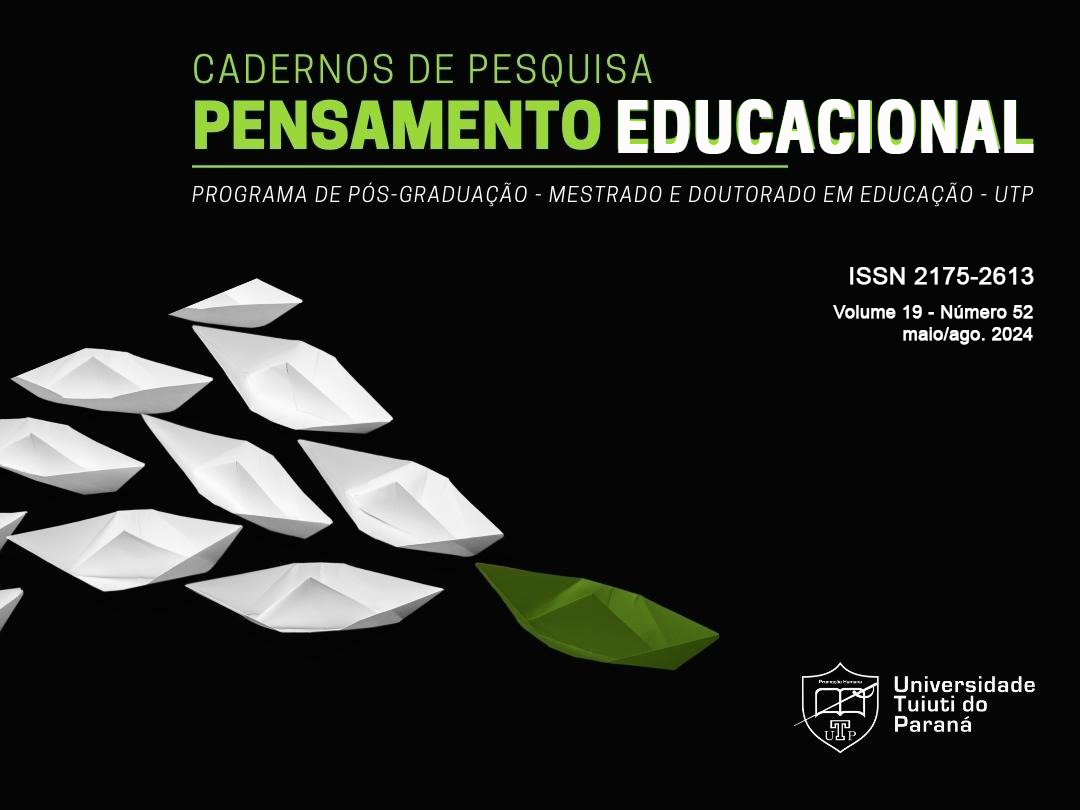Ancestralidade, raça e gênero em Educação do Campo: as Cirandas de Saberes de mulheres campesinas no território da Chapada Diamantina/BA
Resumo
Neste texto, convidamos o/a leitor/a a conhecer a ciranda de saberes como proposição teórico-metodológica para o trabalho com mulheres campesinas em contextos do campo brasileiro, de modo a fortalecer a intersecção entre raça, gênero e ancestralidade a partir de inspirações negro-feministas e descoloniais. Para isso, apresentaremos recortes de uma pesquisa desenvolvida no Programa de Pós-Graduação Mestrado Profissional em Educação do Campo da Universidade Federal do Recôncavo da Bahia, especialmente, na linha de pesquisa Cultura, Raça, Gênero e Educação do Campo no ano de 2023. Propomos evidenciar um alinhamento teórico-metodológico e político, em tramas feministas negras e descoloniais, para afirmar raça, gênero e ancestralidade como categorias fundamentais para a compreensão dos modos de educação, de (infra)política e de re-existência das mulheres do campo no contexto brasileiro. Com isso, compreendemos que a circularidade da ciranda de saberes, construída em parceria com mulheres negras e campesinas do território de identidade da Chapada Diamantina/BA, reverbera um entremeio indissociável entre teoria, metodologia e política para pesquisas em Educação do Campo.
Copyright (c) 2024 Celiane Ribeiro Miranda Santiago, Priscila Gomes Dornelles Avelino

This work is licensed under a Creative Commons Attribution-NonCommercial 4.0 International License.
- Autores mantém os direitos autorais e concedem à revista o direito de primeira publicação, com o trabalho simultaneamente licenciado sob a Licença Creative Commons* que permite o compartilhamento do trabalho com reconhecimento da autoria e publicação inicial nesta revista.
- Autores têm autorização para assumir contratos adicionais separadamente, para distribuição não-exclusiva da versão do trabalho publicada nesta revista (ex.: publicar em repositório institucional ou como capítulo de livro), com reconhecimento de autoria e publicação inicial nesta revista.
- Autores têm permissão e são estimulados a publicar e distribuir seu trabalho online (ex.: em repositórios institucionais ou na sua página pessoal) a qualquer ponto antes ou durante o processo editorial, já que isso pode gerar alterações produtivas, bem como aumentar o impacto e a citação do trabalho publicado (Veja O Efeito do Acesso Livre).
- Esta revista proporciona acesso público a todo o seu conteúdo, uma vez que isso permite uma maior visibilidade e alcance dos artigos e resenhas publicados. Para maiores informações sobre esta abordagem, visite Public Knowledge Project.

*Esta obra está licenciado com uma Licença Creative Commons Atribuição-NãoComercial 4.0 Internacional.


